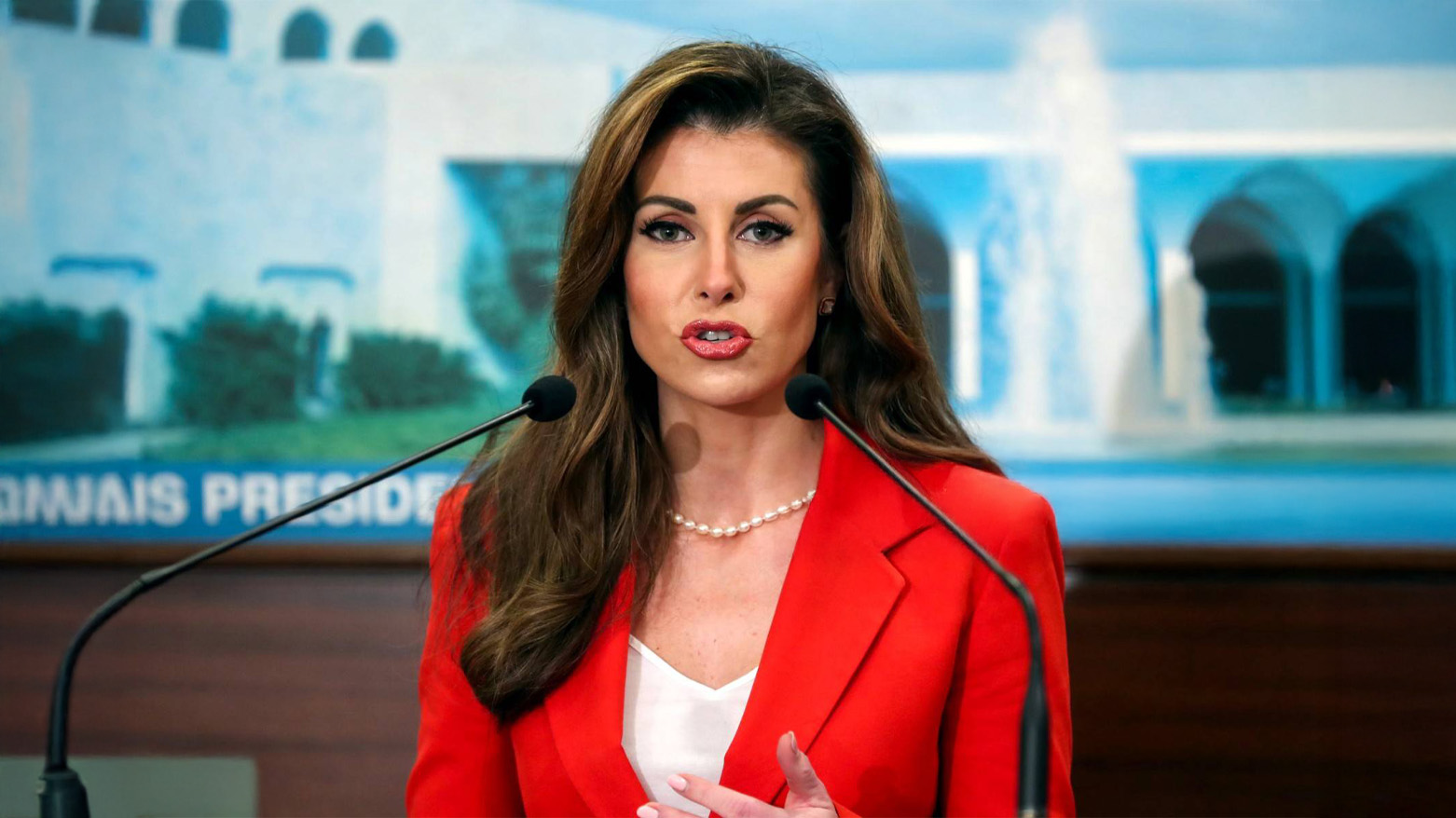US Diplomat Calls for Kurdish Inclusion in Syria's Future Governance
Morgan Ortagus welcomed Syria’s post-war political transition under interim President Ahmad al-Sharaa, describing his early efforts as “forward-leaning.”

By Ahora Qadi
ERBIL (Kurdistan24) – Morgan Ortagus, Deputy Envoy for the Middle East under President Donald Trump, underscored the necessity of safeguarding minority rights in Syria and called for the meaningful integration of Kurds and other communities into the country’s emerging governance structure.
In an interview on Friday, Ortagus welcomed Syria’s post-war political transition under interim President Ahmad al-Sharaa, describing his early efforts as “forward-leaning” and indicative of a broader shift toward inclusivity and regional peace.
“We’ve given President Al-Sharaa a list of expectations—chief among them is the protection and integration of minorities, including Kurds, Christians, Druze, and Alawites,” Ortagus said. “Not only do we want these communities protected, but we want them actively involved in government.”
Washington’s Expectations
The US envoy reiterated that peace, not conflict with neighbors like Lebanon or Israel, is the only viable path forward for Syria’s leadership.
“President Al-Sharaa understands that the future of Syria is not through war with its neighbors. It is through cooperation and reconstruction,” Ortagus said.
She hinted at further demands placed on Damascus by Washington, beyond minority protections, but declined to elaborate. However, she made clear that Syria’s reintegration into the international system depends on the full implementation of these conditions.
Ortagus emphasized that any sustainable future for Syria must be one of inclusivity, justice, and constitutional pluralism—principles echoed by recent Kurdish political developments inside the country.
A Kurdish Roadmap for Representation
Her comments follow the Kurdish Unity and Solidarity Conference held on April 26 in Qamishlo, northeastern Syria (Western Kurdistan), which marked a historic moment in Kurdish political coordination. The conference concluded with the formation of a joint Kurdish delegation tasked with initiating political dialogue with Damascus to ensure constitutional recognition of Kurdish rights.
More than 400 Kurdish political figures, civil society representatives, and independent personalities—alongside envoys from the Kurdistan Region and European Kurdish parties—endorsed a unified political document advocating for a decentralized, democratic Syria.
The charter calls for:
- Recognizing Syria’s multiethnic, multireligious composition.
- Enshrining Kurdish national rights and the Kurdish language in the constitution.
- Guaranteeing freedom of religion and cultural expression for all communities.
Ortagus praised the Syrian interim leadership’s willingness to engage with the United States and regional powers, noting that Al-Sharaa had “worked closely with Saudi Arabia to communicate with President Trump and our team about lifting sanctions, especially the Caesar Act.”
A Turning Point in Syrian-Kurdish Relations
The convergence of Kurdish demands for constitutional recognition and Washington’s insistence on minority protection reflects a growing international consensus. Both the Kurdish political movement and Western stakeholders now envision a pluralistic Syria where Kurdish participation is not merely tolerated, but essential to national rebuilding.
“The unity of Syria and the recognition of its diverse social fabric are no longer mutually exclusive,” said a senior Kurdish political observer in Qamishlo. “We are at the threshold of a new national contract.”
As diplomatic channels reopen and sanctions lift, observers say the next critical phase lies in the implementation—whether Al-Sharaa’s government will institutionalize these pledges into Syria’s new constitution and governance structures.
